What is Ragtime: The music of Scott Joplin (sheet music)
Solace – Scott Joplin (sheet music)
Maple leaf Rag – Scott Joplin sheet music
Scott Joplin
(Texarcana, 1868 – New York, 1917) American pianist and composer. to formal perfection ragtime , pieces with a syncopated rhythm that were very popular in the first decades of the 20th century in the United States, in which a sense of rhythm close to that of jazz can be appreciated. His Maple leaf rag (1899) for piano met with immense success. The opera Treemonisha (1911), a mixture of black rhythms, ragtime and Italian opera, is his most ambitious work.
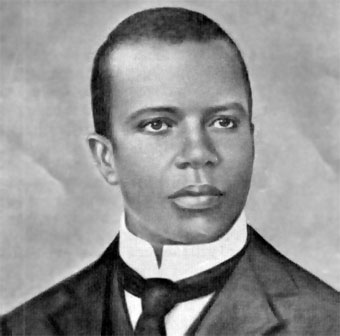
Scott Joplin
Scott Joplin received private piano lessons from a very young age. In the mid-1980s he undertook a long journey through the American Midwest, and in 1893 he performed at the Columbian Exposition in Chicago.
Joplin wanted to succeed as a pianist and as a classical composer; for this reason he settled in 1895 in Sedalia and studied music at the George R. Smith University for colored people. In 1900, he moved to St. Louis to work with music publisher John Stark.
In 1902, he published and choreographed his first ballet piece, in which numerous ragtime, and in 1903 he published his first opera, guest of A honor.
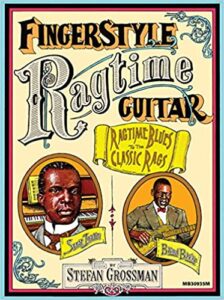
Then, in 1907, he moved to New York, and in the same year he wrote the instruction manual The School of Ragtime. Joplin developed and perfected ragtime with a series of compositions that have become classics of this genre, such as Maple leaf rag, Wall street rag and The entertainer , a theme on which composer Marvin Hamlisch would base himself for the unforgettable soundtrack of the film The Heist (1973), starring Paul Newman and Robert Redford. His contract with John Stark ended in 1909.
One of his most outstanding productions was Treemonisha , from 1911, a work that synthesizes all the ideas that the author had about music in a classical opera. Of this opera between acts, for which Joplin also wrote the libretto, only the edition for voice and piano survives, edited at the time by the same author, although the manuscript score for orchestra, which Scott Joplin finished, has not been found. but that was unpublished.
Treemonisha has been defined as “the first great American opera, since it speaks a genuinely American language with the conventional forms of Western opera, such as the overture, the aria, the graceful, the recitative, the choirs and the ballet” (WJ Schafer and J. Riedel). The work is of closed forms and is made up of twenty-seven numbers. Some precise choreographic indications, drawn up by Joplin, accompany some scenes; they are of particular interest for mounting numbers 4, 13 and 27.
The action takes place in 1884, when Treemonisha, the protagonist, is eighteen years old. The scene takes place on a plantation in Arkansas and in the thick jungle that surrounds it. The area is inhabited only by blacks, since their white masters have abandoned it after the defeat of the Confederates. Two tendencies confront the population: a fetishist, dominated by superstitions and linked to magical culture, ridiculed by Joplin, and another that trusts in the progress achieved through culture, personified by Treemonisha and her parents.
Treemonisha (whose name derives from the fusion of the words “tree”, tree, and Monisha, the name of the woman who wanted to have a child, found the girl under a tree, and raised her as her own) is the only literate person from the black community, for whom the civil war has brought freedom.

Educated by a white woman in exchange for her parents’ work, Treemonisha, once her training is over, finds, thanks to her education and culture, the necessary strength to overcome the superstitious and magical tendency present in the community.
Obviously, she goes through difficulties and dangers, which initiate her in the role of a guide capable of enlightening the black community. The plot core of the libretto is found in this contrast and in these difficulties, which give a special originality to the extraordinary balance that exists between the non-realistic character of the operatic form and the concrete character of its non-fantastic communication.
The choice of a woman who assumes the role of the protagonist possibly derives from the prevailing matriarchal character (more for socio-historical reasons than for residual Africanism) among the black populations of North America.
Joplin only occasionally uses in this work the rhythmic pattern of ragtime, which she seems to have used more extensively in an earlier opera, A Guest of Honor in 1903, now lost.
After Treemonisha , Scott Joplin composed and even recorded on piano rolls several ragtime pieces, so this opera certainly represents neither a criticism nor an abandonment of the music that was in fashion at the time, and that gave him a well-deserved fame.
Treemonisha is not an ambitious extension of the forms of that genre, but rather identifies itself completely with the operatic tradition, and sinks its roots and its reason for being in that life of the melodramas of the South of the United States that left so many traces in the music by some old jazz composers, and also by Louis Armstrong.
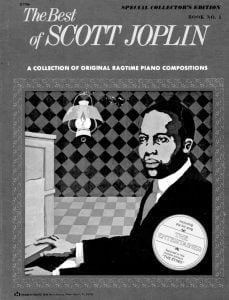
The Musical Elements Of Ragtime In The Music Of Scott Joplin
Introduction
With its origins dating back to the 19th century, the ragtime music genre is widely considered to be the forerunner of what jazz music would become today. This genre is easily recognized by its cheerful and bouncy style. Although today when the term “Ragtime” is mentioned, it usually refers to music exclusively for piano, in the golden years of this genre voice and other musical instruments were also included mainly, as well as its own dance style.
Defined by the Oxford dictionary in Spanish (sf), ragtime is the “style of black dance music born at the end of the 19th century and very popular at the beginning of the 20th, with a syncopated binary rhythm, and composed mainly for piano.”
To analyze the musical and artistic elements of this genre in particular, two pieces considered fundamental to the genre will be analyzed and compared, created by the author Scott Joplin, “[…] who composed works of considerable charm and ingenuity […]”.
The research question derives from the topic “The musical elements of Ragtime”, which is “What are the rhythmic and harmonic aspects of the pieces Maple Leaf Rag (1899) and The Entertainer (1902) by Scott Joplin for the development of the genre Ragtime?”.
The focus of this monograph will focus on the musical technical and theoretical analysis of the rhythmic and harmonic aspects of the previously mentioned pieces. The possible contextual elements that could have influenced the creation of these pieces will also be discussed, as well as their importance at the time they were published.
The justification for investigating this topic is of mere personal interest, since for a portion of my life I had listened to these rhythms on recordings without knowing which genre they particularly belonged to. It was until I was introduced to Ragtime as such in private piano lessons. Although at first it was complex for my ability to learn to play a style with ripped time, it soon became one of my favorite genres to play.
It is considered pertinent to carry out a study of the elements that characterize the previously mentioned genre, to analyze how a particular feeling and energy can be transmitted through the adequate use of musical theory, and how it can help in the expression of specific feelings in the form of music. of music.
The analysis of both musical pieces will be divided into two sections. The piece The Entertainer will be analyzed first, then Maple Leaf Rag, and once the most emblematic aspects of each piece have been extracted, these elements will be contrasted, in such a way that it is possible to observe which ones stand out the most so that a piece is considered of the genre.
These foundations will also be enriched with the social and historical context and what factors influenced the creation of said harmonies and rhythms, also including expert comments on the interpretation of said pieces, such as speed, accents, among others.
The scope of this monograph is limited to the availability of scores and the lack of recordings performed by the author himself, due to the archaic technology of the 19th century, in which musical production was just beginning to industrialize. Primary sources are Maple Leaf Rag and The Entertainer sheet music. Secondary sources are internet articles written by professionals.
The Entertainer
The structure of this piece constitutes an introduction to enter the work, and then a pattern is presented in the following sections: AA BB A CC DD. Each section fulfills the function of being repeated once, with the exception of section A, in such a way that in the second repetition a variation of the section is played that connects with the following one. So until you reach the last section D to finish the Rag.
Graphic of my authorship. Demonstration of the various sections in The Entertainer (Joplin, 1902).
Graphic of my authorship. Demonstration of the various sections in The Entertainer (Joplin, 1902).
Introduction: This prepares our ear to enter the piece. It is a small motif that is repeated twice, each time played an octave below the previous one, then a small chromatic variation descends in such a way as to leave room for an accented G major chord. An upbeat marks another chromaticism from D to D# for the anticipation of the next measure.
Section A: This section tells us the main theme of the piece. It has a simple pattern. The first motif, which spans bars 5-16, is repeated three times, followed by a second motif from bars 17-20, which functions as a turnaround would in blues music, to return to the first motif. This set of reasons are those that elaborate the main theme.
You can see that the structure of this piece is AA BB A CC DD. Each section ends after a repetition, in which, the second time it is played again, it concludes with a second box. This to vary what was proposed in each section during the first round, and apart from serving as a ‘transition’ for the next section.
This happens for most of the piece, except for one more repetition of section A, after section B, which has the function of accentuating the main theme of the song. Graphic by me. Demonstration of the various sections of the Maple Leaf Rag (Joplin 1899).
Section A: Theme of the piece. It is the most recognizable when listening to the song. Its purpose is to set a main mood for the listener. Maple Leaf Rag in this section has a fast melody, played at twice the speed of the left hand, playing one hand in sixteenth notes and the other in eighth notes.
Section B: Continued with fast melodies in sixteenth notes, the bass begins to progress with a syncopated rhythm. This section also bears resemblance to the typical bass of a military march.
Section C: As in section B, it continues with a syncopated bass, however, it also begins to walk more, as well as the typical bass of Jazz. The melody progresses in more complex variations than the previous section, since it does not stay within the range of an octave that it make arpeggios. This section is the most complex of the piece.
Section D: Similar to section A, the syncopated bass is no longer as marked as other sections and a motif begins to be created to conclude the piece, resolving various tension chords to give the feeling of returning home. On the second repeat, it ends with a grand chord on the tonic of the E flat major scale.
Rhythm and harmony
The compass that is carried is 2/4. This indicates that the numerator will divide the measure into two parts, and the denominator that it will be counted in quarter notes, of which 4 fill a full beat. So, they fit 2 quarter notes per bar in 2/4 time.
This time signature also indicates on which pulse the accents would be marked. In western music it is usually accentuated on the first beat of each measure, however, in syncopated rhythm, the beats corresponding to 2 and 4 are accented. In ragtime, as well as in various subgenres of Jazz, this characteristic is used, managing to create a distinctive rhythm. Bar 18 of Maple Leaf Rag.
The left hand is responsible for carrying and marking these accents, big jumps are made with the hand on the piano keyboard. Thanks to this, it was considered an innovation for his time, since Joplin invents playing bass and harmony with the same hand consecutively.
Harmony: (talk about chords, resolution of 7ths and change between 5ths. E flat major). As for the harmony of this piece, it is written in the key of E flat major.
Melody
Scales: (pentatonic, natural)
Melody patterns: (arpeggios within a single octave)
‘Although not the first rag to be written or published, Maple Leaf Rag became the first instrumental piece to sell more than a million copies.’ (Edwards, s.f.). One of Joplin’s early compositions was a resounding success, as he reached this number in less than a decade. With this, Joplin is recognized as ‘the king of Ragtime’, making it, in a short time, the musical genre par excellence in the United States.
Browse in the Library:
| Artist or Composer / Score name | Cover | List of Contents |
|---|---|---|
| Alan Silvestri The Avengers |
 |
Alan Silvestri The Avengers |
| Alan Walker – Faded |
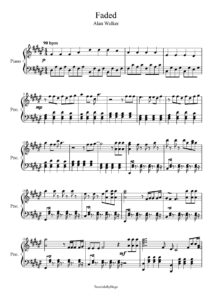 |
|
| Alan-Menken – Enchanted (Disney) |
 |
Enchanted Piano Vocal Guitar |
| Alanis Morisette – Hand In My Pocket | ||
| Alanis Morisette – Hands Clean | ||
| Alanis Morisette – Ironic | ||
| Alanis Morisette – Thank You | ||
| Alanis Morisette – That I Would Be Good | ||
| Alanis Morisette – Uninvited | ||
| Alanis Morisette – You Oughta Know | ||
| Alanis Morrissete You Oughta Know Sheet Music |
 |
|
| Alban Berg – Schliesse Mir Die Augen Beide (Musescore File).mscz | ||
| Alban Berg – Schliesse mir die Augen beide (Piano and voice Noten) |
 |
|
| Albeniz Isaac – Tango In D – Para Piano | Albeniz, Isaac – Tango In D – Para Piano | |
| Albeniz For Acoustic Guitar with Audio MP3 by Laurindo Almeida |
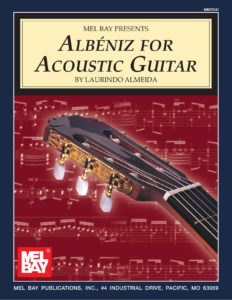 |
Albeniz for acoustic guitar with audio MP3 |
| Albeniz Suite Española V (Musescore File).mscz | ||
| Albéniz, Isaac – Capricho Catalán (Op. 165 no. 5) (Guitarra – Guitar) |
 |
|
| Albéniz, Isaac – Capricho Catalán (Op. 165 no. 5) (Piano) |
 |
|
| Albert Ammons 5 Boogie Woogie Piano Solos Sheet Music |
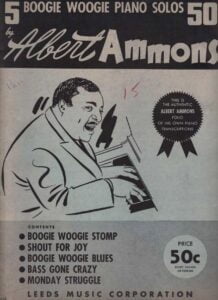 |
Albert Ammons 5 Boogie Woogie Piano Solos Sheet Music |
| Albert Ammons – Boogie Woogie Stomp |
 |
|
| Albert Ammons – Monday Struggle | Albert Ammons – Monday Struggle | |
| Albert Ammons – Shout For Joy | Albert Ammons – Shout For Joy | |
| Albert Ammons – Swanee River Boogie Woogie |
 |
|
| Albert Harris Sonatina Guitar Solo |
 |
|
| Albert Harris Variations And Fugue On A Theme Of Haendel (Guitar) |
 |
|
| Albert King The Very Best Of Albert King (Guitar TABs) |
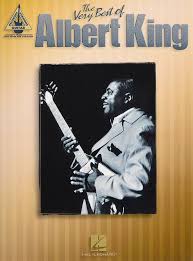 |
Albert King The Very Best Of Albert King |
| Albert Lee – The Best Of Albert Lee Guitar Tabs |
 |
Albert Lee – The Best Of Albert Lee Guitar Tabs |
| Albinoni – Adagio (Piano Solo Version) |
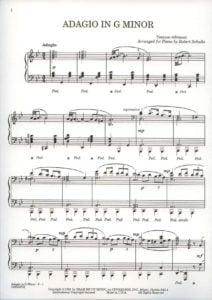 |
|
| ALBINONI-Adagio |
 |
|
| Album of Russian piano music | Russian music 1 | Russian music 2 |
| Album Of Scandinavian Piano Music By Louis Oesterle Vol. 1 (25 Pieces) 1902 |
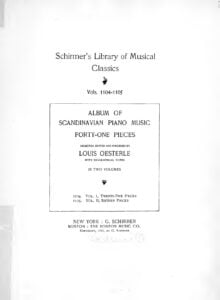 |
Album Of Scandinavian Piano Music By Louis Oesterle Vol. 1 (25 Pieces) 1902 |
| Alegre Magín – Americana (Guitarra) Habanera (Musescore File).mscz | ||
| Alegria Cirque Du Soleil Piano Vocal Guitar Chords Sheet Music |
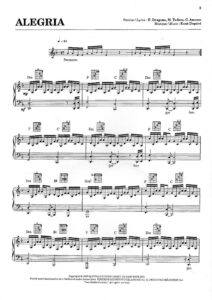 |
|
| Alejandro Sanz – Amiga Mia | ||
| Alejandro Sanz – La Margarita Dijo No | ||
| Alejandro Sanz – Y Si Fuera Ella | ||
| Aleksander Vertinskiy songbook |
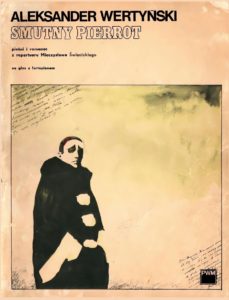 |
Aleksander Vertinskiy songbook |
| Alex North – Spartacus Love Theme (piano sheet music) |
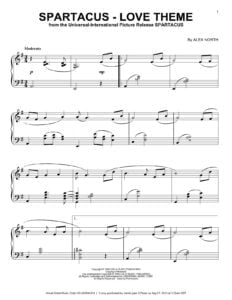 |
Alex North Spartacus Love Theme |
| Alex North Spartacus Love Theme (Lead sheet) | Alex Norrth SpArtacus | |
| Alexander Scriabin 24 Preludes Op. 11 1 To 12 Musescore File.mscz | ||
| Alexandra Streliski Burnout Fugue |
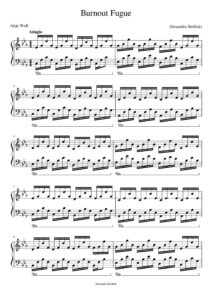 |
|
| Alexandra Streliski Le Noveau Dèpart |
 |
|
| Alexandra Streliski Par La Fenêtre De Théo |
 |
|
| Alexandra Streliski Plus Tôt |
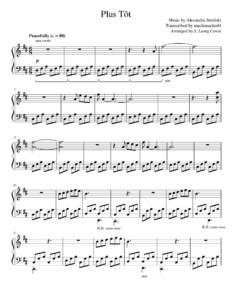 |
|
| Alexandra Strevisky Pianoscope |
 |
Alexandra Strevisky Pianoscope |
| Alexandre Desplat Elisas Theme Piano from The shape of water |
 |
|
| Alexandre Desplat The Shape Of Water Main Theme |
 |
|
| Alexandre Desplat – Lust Caution |
 |
Alexandre Desplat – Lust Caution |
| Alexandre Desplat – The Imitation Game |
 |
|
| Alexandre Desplat – The Meadow New Moon Piano solo Sheet Music |
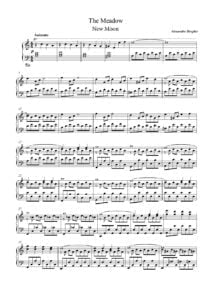 |
|
| Alexandre Desplat Almost A Kiss (From The Film New Moon) |
 |
|
| Alexandre Desplat and Lang Lang Kitty,s Theme from The Painted Veil | Alexandre Desplat and Lang Lang Kitty,s Theme from The Painted Veil | |
| Alexandre Desplat Brunos Theme From Suite Fran?aise |
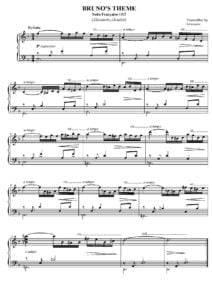 |
|
| Alexandre Desplat Full Moon (From The Film New Moon) |
 |
|
| Alexandre Desplat My Week With Marilyn – Marilyn’s Theme |
 |
|
| Alexandre Desplat Ost Godzilla Main Theme |
 |
|
| Alexandre Desplat The Danish Girl Theme Piano Solo |
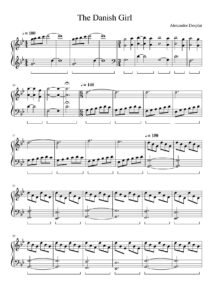 |
|
| Alexandre Desplat The Imitation Game |
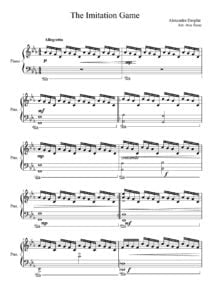 |
|
| Alexandre Desplat The King Speech |
 |
Alexandre Desplat The King Speech |
| Alexandre Desplat The Power Plant from Godzilla |
 |
|
| Alexandre Desplat The Wonder Of Life |
 |
|
| Alexandrov Piano Works Vol I |
 |
|
| Alexandrov Works for Piano Vol II |
 |
|
| Alexandrov Works for Piano Vol III Sonatas |
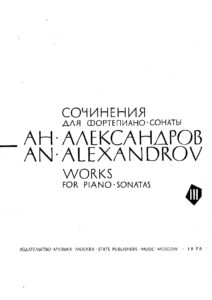 |
|
| Alexandrov, Anatoly 6 Preludes For Piano Op. 1 (1961) |
 |
|
| Alexis Ffrench – Bluebird |
 |
|
| Alfred Basic Adult Christmas Book Level 1 |
 |
|
| Alfred Basic Repertoire Level 4 |
 |
|
| Alfred Brendel A Pianists A-Z A Piano Lovers Reader Book |
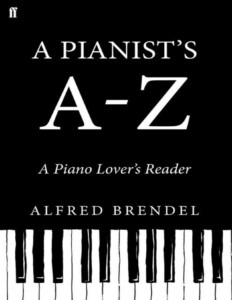 Andrew Hill 21 Piano Compositions Andrew Hill 21 Piano Compositions |
|
| Alfred’s Basic Adult Piano Course Level 1 |
 |
Lessons Alfred’s Basic Adult Piano Course Level 1 |
| Alfred’s Basic Adult Piano Course Level 2 |
 |
Lessons Alfred’s Basic Adult Piano Course Level 2 |
| Alfred’s Basic Adult Piano Course Level 3 |
 |
Lessons Alfred’s Basic Adult Piano Course Level 3 |
| Alfred’s Basic Piano Level 2B |
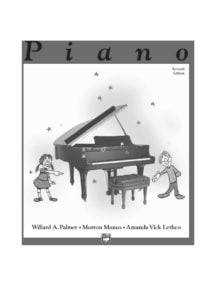 |
|
| Alfred’s Basic Piano Level 4 Jazz Rock Course |
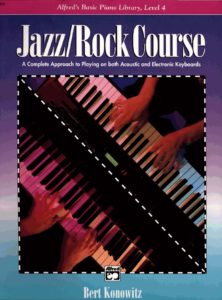 |
|
| Alfred’s Basic Piano Library Essentials Of Jazz Theory Book 2 |
 |
Alfred’s Basic Piano Library Essentials Of Jazz Theory Book 2 |
| Alfred’s Basic Piano Library – Solo Book Complete Levels 2 & 3 for the later beginner |
 |
Alfred’s Basic Piano Library – Solo Book Complete Levels 2 & 3 for the later beginner |
| Alfred’s Basic Piano Library – Top Hits! Solo Book – Level 4 |
 |
|
| Alfred’s Basic Piano Library Essentials Of Jazz Theory Book 1 |
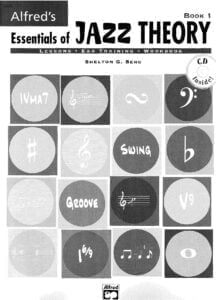 |
Alfred’s Basic Piano Library Essentials Of Jazz Theory Book 1 |
| Alfred’s Basic Piano Library Essentials Of Jazz Theory Book 3 |
 |
Alfred’s Basic Piano Library Essentials Of Jazz Theory Book 3 |
| Alfred’s Basic Piano Library Lesson Book Level 3 |
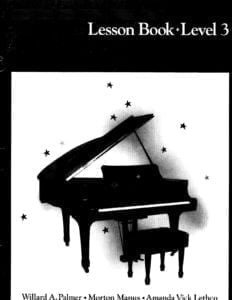 |
|
| Alfred’s Teach Yourself To Play Guitar Everything You Need To Know To Start Playing The Guitar! (with Tablature) |
 |
|
| Alfred’s Essentials Of Music Theory, Complete (Andrew Surmani, Karen Farnum Surmani Etc.) Sheet Music |
 |
|
| Ali and Nino (Dario Marianelli) | ||
| Alice Coltrane Monument Eternal (book) The Music of – by Franya J. Berkman |
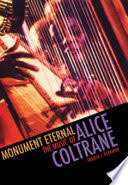 |
|
| Alice In Chains Dirt Full album Guitar TAB with lyrics |
 |
Alice In Chains Dirt Full album Guitar TAB with lyrics |
| Alicia Keys – A Woman’s Worth | Alicia Keys – A Woman’s Worth | |
| Alicia Keys – A Womans Worth | ||
| Alicia Keys – And I | ||
| Alicia Keys – As I Am (Songbook) |
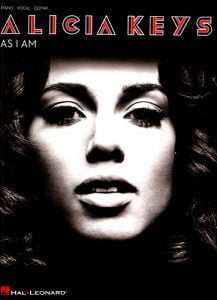 |
ALICIA KEYS SONGBOOK |
| Alicia Keys – Butterflyz | ||
| Alicia Keys – Diary | ||
| Alicia Keys – Fallin | ||
| Alicia Keys – Fallin’ (Sheet Music – Piano) | Alicia Keys – Fallin’ (Sheet Music – Piano) | |
| Alicia Keys – Goodbye | ||
| Alicia Keys – How Come You Dont Call Me | ||
| Alicia Keys – If I Aint Got You |
 |
|
| Alicia Keys – Impossible | ||
| Alicia Keys – Never Felt This Way | ||
| Alicia Keys Diary Song Book |
 |
ALICIA KEYS DIARY SONGBOOK |
| Alicia Keys The Element Of Freedom Songbook |
 |
ALICIA KEYS |
| Alicia Keys Unplugged |
 |
ALICIA KEYS UNPLUGGED |
| Alkan, Charles Valentin Concerto For Solo Piano 1st Movement Opus 39 No. 8 In G Minor (Piano Solo Reduction) |
 |
|
| All 4 One – I Can Love You Like That | ||
| All 4 One – I Swear | ||
| All American Folk Complete Sheet Music Editions Volume One (Creative Concepts Publishing Corp.) |
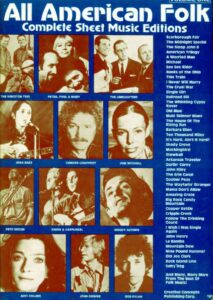 |
All American Folk Complete Sheet Music Editions Volume One (Creative Concepts Publishing Corp.) ( |
| All Blues For Jazz Guitar Comping Styles Chords And Grooves by Jim Ferguson Guitar Tablature |
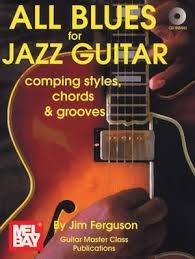 |
All Blues For Jazz Guitar Comping Styles Chords And Grooves by Jim Ferguson Guitar Tablature |
| All Blues Soloing For Jazz Guitar – Jim Gerguson Play Along (Book + audio MP3) with Tablature |
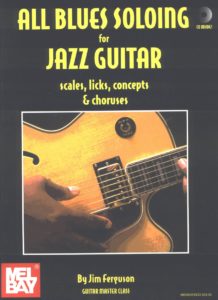 |
All Blues Soloing jazz guitar |
| All By Myself – Celine Dion (Musescore File).mscz | ||
| All I Want For Christmas Is You (Musescore File).mscz | ||
| All Of Me – Jazz Standard Stride Piano arr. Gerald Marks and Seymour Simons | All of me (Gerald Marks and Seymour Simons) Jazz Piano Solo arr. sheet music | |
| All Of Me – Jazz Standard Stride Piano Arr. Gerald Marks And Seymour Simons (Musescore File).mscz | ||
| All Of Me Fingerstyle Guitar TABs By Lucas Brar Jazz Standard (Gerald Marks and Seymour Simons) | All Of Me Fingerstyle Guitar TABs By Lucas Brar Jazz Standard | |
| All Of Me Gerald Marks & Seymour Simons 1931 Jazz Standard (Vintage sheet music) | All Of Me Gerald Marks & Seymour Simons 1931 Jazz Standard (Vintage sheet music) | |
| All Of The Jazz Standard Vol. 1 |
 |
All Of The Jazz Standard Vol. 1 |
| All Of The Jazz Standard Vol. 2 |
 |
All Of The Jazz Standard Vol. 2 |
| All Saints – Never Ever | ||
| All Sondheim Vol I Music and lyrics |
 |
All Sondheim Vol I Music and lyrics |
| All Sondheim Vol II Music and lyrics |
 |
All Sondheim Vol II Music and lyrics |
| All Sondheim Vol III Music and lyrics |
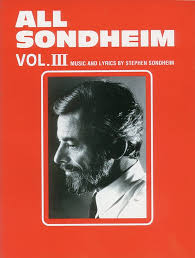 |
All Sondheim Vol III Music and lyrics |
| All Sondheim Vol IV Music and lyrics |
 |
All Sondheim Vol IV Music and lyrics |
